#Marx-Engels-Forum
Video
Es leuchtet nicht by Pascal Volk
#Europe#Germany#Berlin#Berlin Mitte#Mitte#Spandauer Straße#Marx-Engels-Forum#Fernsehturm#Telespargel#Torre de televisión#Television Tower#Riesenrad#Ferris wheel#Giant Wheel#Noria#Nacht#Night#Noche#ARTinBW#schwarz#weiß#black#white#Black and White#schwarzweiß#S&W#B&W#bnw#blanco y negro#blanco-negro
0 notes
Text
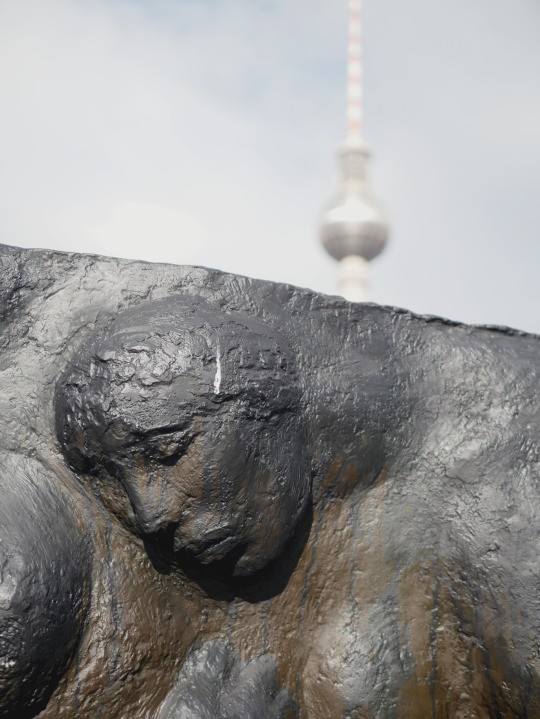
Der Blick. / 20.09.2022
[Die Würde und Schönheit freier Menschen (Detail), Margret Middell, 1986]
#Berlin#Berlin Mitte#Marx Engels Forum#Kunst der DDR#DDR Kunst#Public Art#Socialist Art#GDR Art#Berliner Fernsehturm#Margret Middell#1980er#Bildhauerei der DDR#Relief#2022#2022September#2022September20
25 notes
·
View notes
Text
youtube
film by H. Paul Moon, October 8-16, 2023
music composed & performed by Chester Hawkins
from nil. 01 (1, 4, 5) developed in residency at Liebig12
locations in order of appearance: Fernsehturm, Humboldt Forum, Alexanderplatz, Warschauer Straße, Marx-Engels Forum, Berliner Dom, Altes Museum, Pergamonmuseum, Gemäldegalerie, Sachsenhausen, Werderscher Markt, Memorial to the Murdered Jews of Europe, Soviet War Memorial Tiergarten, Victory Column, St. George – The Dragonslayer, Parochialkirche, Gedenktafel Bauakademie, Allied Checkpoint C, East Side Gallery (Berlin Wall), Marienkirche, Reichstag, Kantoren van Bondsdagleden, Marie-Elisabeth-Lüders-Haus, Brandenburg Gate, Lustgarten, St.-Hedwigs-Kathedrale, Humboldt University, Potsdamer Platz
#Berlin#Fernsehturm#Sachsenhausen#Festival of Lights#Marienkirche#Berliner Dom#Altes Museum#Pergamon#Humboldt Forum#Reichstag#Holocaust#Victory Column#Brandenburg Gate#Lucas Cranach#Berlin Wall#East Side Gallery#Gemäldegalerie#Hieronymus Bosch#Marx-Engels Forum#Youtube
0 notes
Text
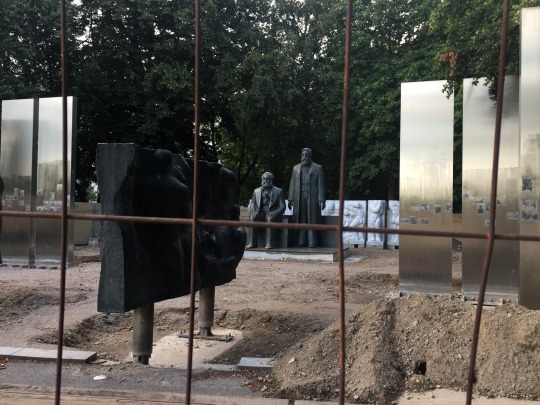

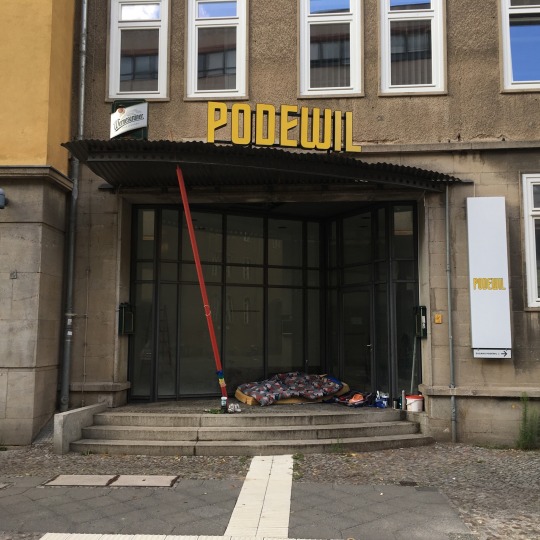
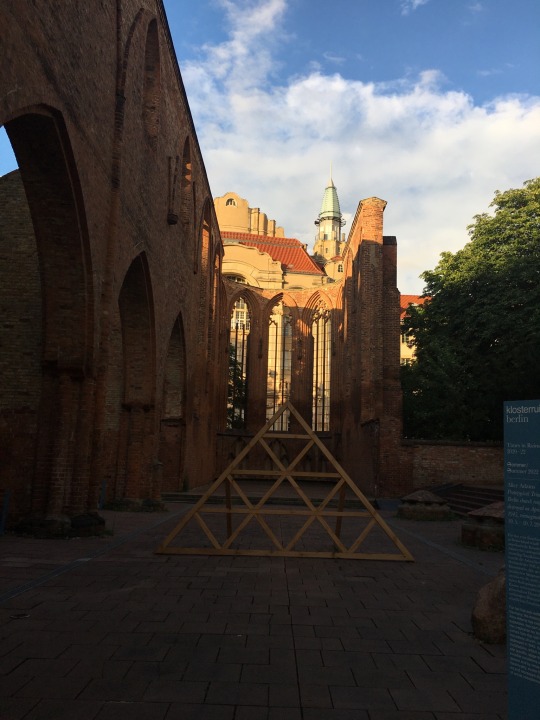

some pics of historical berlin - marx-engels-forum under reconstruction, nikolaiviertel, podewil, klosterruine and a house on the street that follows the former medieval city wall
20 notes
·
View notes
Text
Once Again on the Alleged Differences between Marx and Engels - S.Mavroudeas 2023 WAPE Forum
Frederick Engels: The First Marxist?
The 2023 World Association of Political Economy (WAPE) Forum took place in Pingtan city (Fudgian province, China). In this forum I presented a paper titled ‘Once Again On The Alledged Differences Between Marx and Engels’.
The paper confronts the attacks by many older and newer anti-Engelsionists (prominent among them M.Heinrich and D.Harvey) against Engels…

View On WordPress
0 notes
Text


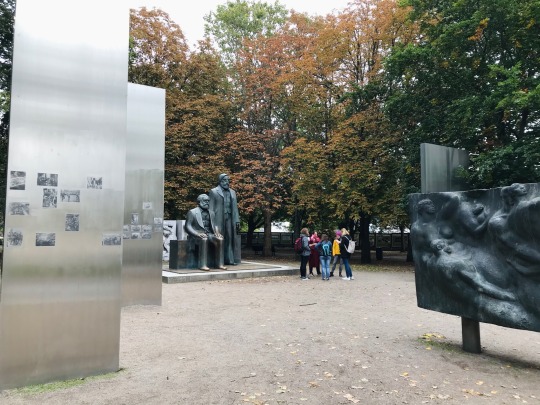
Marx-Engels-Forum
8 notes
·
View notes
Video
Das #Marx-#Engels-#Forum ist eine in den 1980er Jahren errichtete #Denkmalanlage in #Berlin-#Mitte.
1 note
·
View note
Text
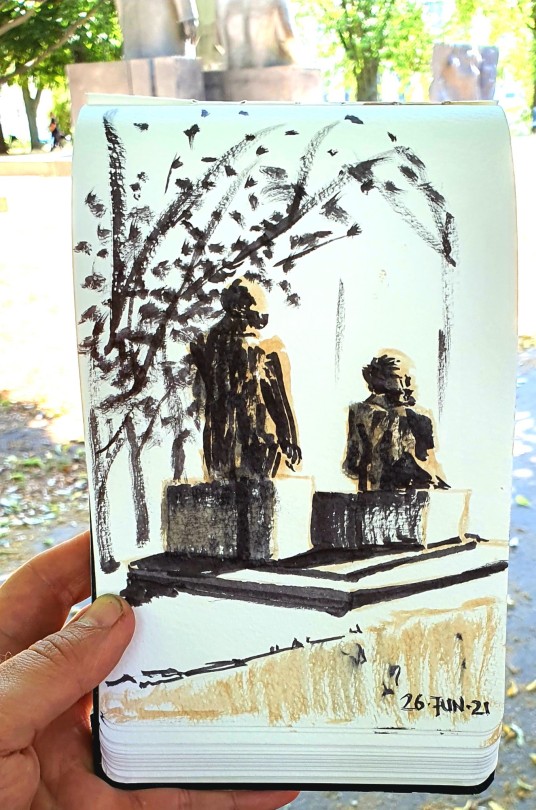
Marx-Engels-Forum.
10 notes
·
View notes
Photo
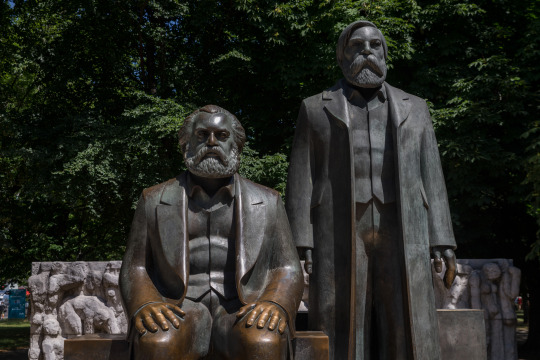
Marx & Engels
Marx-Engels Forum - Berlin
© 2019 Oscar Alcañiz - Please, do not erase this text if you reblog this picture
#photographers on tumblr#Berlin#sculpture#art#marx#engels#comunism#lensblr#original photographers#digital photography#photography#Oscar Alcañiz#akcanzi#Barcelona photographers#Nikon#Nikon d610#fotografia#original post#do no remove credits
111 notes
·
View notes
Video
We were moved by Pascal Volk
#Europe#Germany#Berlin#Berlin Mitte#Mitte#Marx-Engels-Forum#Denkmal#Karl Marx#Friedrich Engels#Ludwig Engelhardt#ARTinBW#schwarz#weiß#black#white#Black and White#schwarzweiß#S&W#B&W#bnw#blanco y negro#blanco-negro#Invierno#Winter#Canon EOS R#Canon RF 70-200mm F2.8L IS USM#70mm#DxO PhotoLab#DxO Silver Efex Pro#Nik Collection
0 notes
Photo
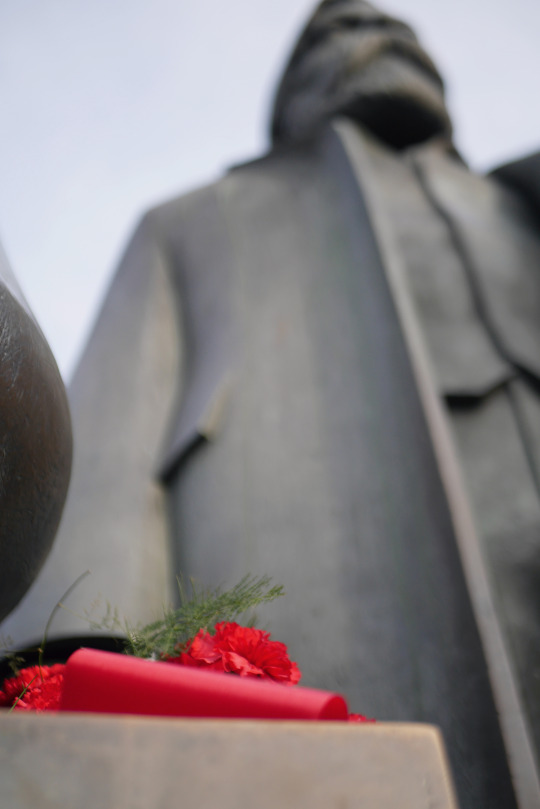
Die Nelken. / 17.12.2020
#Berlin#Berlin Mitte#Marx-Engels-Forum#Friedrich Engels#Kommunismus#Ludwig Engekhardt#Marx-Engels-Denkmal#wenig Rot#Bildhauerei der DDR#Kunst der DDR#2020#2020Dezember#2020Dezember17
12 notes
·
View notes
Text
Silk Road to the Past
Author: Sara Clugage
In celebration of the fourth annual New York Textile Month, members of the Textile Society of America will author Object of the Day for the month of September. A non-profit professional organization of scholars, educators, and artists in the field of textiles, TSA provides an international forum for the exchange and dissemination of information about textiles worldwide.
This portrait of Karl Marx was woven in Hangzhou, China at the East Is Red textile factory (so named after a popular anthem of the Cultural Revolution). Hangzhou has an extraordinarily long history of sericulture, or silk production, a technology that has defined Chinese economic relations with the rest of the world. In Hangzhou, before the Communist revolution in 1954, most silk weaving was done in family workshops clustered in town, each one operating only one or two looms. In 1958, during the Great Leap Forward (China’s immense–and disastrous–drive to industrialize their national economy) silk weaving in Hangzhou was modernized and expanded.
During the Cultural Revolution (1966-1976), Chairman Mao Zedong aimed to erase the “Four Olds”: old customs, old culture, old habits, and old ideas. Foreign and traditional elements of Chinese culture were violently suppressed and materially destroyed, to be replaced with Mao Zedong Thought, as well as widely distributed portraits of Mao himself. Those portraits were mostly posters, but in addition, reels and reels of portraits were woven on Jacquard looms. Meant for display in public places or to be hung outside during parades, this set of woven portraits depicts the “Five Fathers” of communism: Mao himself, along with Marx, Vladimir Lenin, Friedrich Engels, and Joseph Stalin.
Along with their clear communist messaging, these portraits encode the nationalist pride of China, drawing on the country’s proprietary and wealth-generating silk weaving technology. Silk looms large in the Chinese economy and imagination; according to a foundational national myth, silk production began in the 27th century BCE when a silk cocoon fell in the empress Leizu’s teacup and unraveled. Although apocryphal, this story highlights both the ingenuity and the absolute secrecy of Chinese sericulture, a monopoly held by China until at least 300 CE and expedited by Silk Road trading routes.
A woven portrait of Marx is especially poignant, given Marx’s unrelenting criticism of the textile industry. In his early manuscripts of 1844, he quotes at length the capitalist abuses of laborers at textile mills, that newly-formed industrial proletariat, including long hours and poor pay. Interestingly, Marx points to textile workers as the first to have their skills subsumed to wage labor, erasing the specificity of skilled work and turning it into a laborer’s salable commodity. This portrait is a deft piece of propaganda, turning from the alienated labor of textile production under capital to its reclamation by workers in a communist society. It successfully encodes communist economic values with nationalist party values.
Hangzhou is now home to the China National Silk Museum, a research and conservation center that specializes in the history of Chinese silk production. Hangzhou is also a center for finance and technology often likened to Silicon Valley in the US and the base of e-commerce giant Alibaba. The juxtaposition is not incidental–Chinese silk export is still a vital sector of the Chinese economy and a focus of the Belt and Road Initiative, a government effort launched in 2013 to revive the Silk Road as a freight network, making China the geographical center of global trade. As part of the world’s only communist trade empire, silk weaving in China remains a special economic case.
Sara Clugage is a writer, an artist, part of the leadership collective for the Wikipedia campaign Art+Feminism, and editor-in-chief of Dilettante Army.
from Cooper Hewitt, Smithsonian Design Museum https://ift.tt/2mkNG2t
via IFTTT
4 notes
·
View notes
Note
Hi. I wanted to ask what is a good strategy to getting people to read communist theory cause like a lot of it can be pretty dense and not necessarily easy to understand at first. I’ve seen people at a PSL forum mention about it but didn’t really offer much of a solution.
A lot of it is quite dense, yes, but some of it’s also much more simplistic and easy to understand—Engel’s Principles of Communism and Lenin’s description of Marxist philosophy in his biography of Marx, for example—and are good entry-level texts for people completely new to communist ideology and theory. It also helps to be able to talk to people about it; if they’re someone you know and that can bounce ideas off you and ask questions it’ll make it far easier for them to understand and internalise them. Learning with others is always easier than learning in isolation. Study groups exist for a reason, after all. Videos, podcasts and so on can also help, though of course they’re no substitute for the relevant writings themselves.
I’ll be perfectly honest though, I’ve never had too much trouble understanding what communist theory says so haven’t given too much thought as to how to make it more accessible. Everyone learns in different ways so it’s hard to offer universal recommendations.
6 notes
·
View notes
Quote
As a being of praxis, man is a being of freedom. There is no freedom without man, and there is no humanity without freedom. This does not mean that all men have everywhere and always been free. On the contrary, one of the most widespread phenomena in contemporary society is the escape from freedom (See E. Fromm, “Escape from Freedom”, New York, 1941). People feel their freedom and the responsibility associated with it as a heavy burden of which they wish to be relieved, transferring it to others. The escape from freedom was one of the most fundamental factors in the spread of Fascism and Nazism as movements in which individuals were freed of the burden of freedom and all responsibility was assumed by a leader (il Duce, der Führer). Those who so freed themselves of freedom were willing to submit without contradiction to the leader, silencing any inner human voice. They were ready for the most wicked crimes, but also for physical hardships and sacrifice. Without deliberation they killed and looted, froze on snowy plains and choked in the sands of the desert.
The burden of freedom is also heavy for people in "democratic" (capitalistic) countries. To them as well, the escape from freedom is a mass phenomenon, only the forms are different. One of these forms is avoidance of the effort of thought; uncritical, passive acceptance of opinions that are suggested by the media of mass communication, as well as other ways.
The escape from freedom makes its appearance in socialism too. Here too we encounter people who seek to avoid or be rid of freedom, who reduce or attempt to reduce themselves to blind executors of the directives of higher social or political forums, who are prepared to be active to the limit even of physical exhaustion only in order not to have to carry the invisible but nevertheless difficult and unpleasant burden of freedom. The escape from freedom is a spreading phenomenon in the contemporary world, and to the extent that he evades freedom man is not man. “The escape from freedom is a form of man's self-alienation”.
The young Marx wrote: «A life danger for every being consists in loss of oneself. Unfreedom is thus a real death danger for man» (Marx, Engels, “Werke”, bd. I, p. 60). This is well said, but one should go even farther: “Unfreedom is not merely the death danger for man, unfreedom is man's death”. Through becoming unfree, man ceases to be man.
Gajo Petrović, Marx in the Mid-Twentieth Century: A Yugoslav Philosopher Reconsiders Karl Marx's Writings, Anchor Books, Garden City, New York, 1967; pp. 118-19.
#Gajo Petrović#Petrović#Marx in the mid-twentieth century#philosophy#Marx#Karl Marx#XX century#Marxism#freedom#20th-century philosophy#1967#praxis#erich fromm#Fromm#escape from freedom#Fascism#Nazism#leadership#democracy#capitalistic societies#avoidance#socialism#quotes
7 notes
·
View notes
Link
“Capitalism keeps creating socialists, despite its best efforts. When people are dominated, they tend to resist: they build networks of mutual aid and find power in collective action. They begin to imagine a world organized along different lines, one where the wealth they make in common is held in common rather than hoarded by the few.
This is why you can’t kill socialism: because it’s not just a set of ideas about how to interpret and change the world but a tendency produced by the very system it seeks to replace. When Marx and Engels called communism a specter, they captured this undead quality. Socialism is the ghost in the machine, haunting capital wherever its circuits appear.”
1 note
·
View note
Text
Among the Philosophers
Disclaimer: Tulisan ini dibuat dengan tujuan mengapresiasi orang-orang yang menginisiasi sebuah komunitas bernama Diponegoro Foreign Affairs Dialogue (DFAD)
Dalam kehidupan sosialku, sirkel pertemananku dapat dikategorikan dalam lima kelompok. Ada sirkel pertemanan dekat yang tahu hitam, putih, dan abu-abu kehidupanku (or, bahasa mudahnya, paling mengenalku secara pribadi). Ada sirkel traveling yang bikin wacana tempat jalan-jalan baru. Ada sirkel main yang biasanya mencari tempat nongkrong baru. Ada sirkel kolega kerja yang biasanya nggak hanya membicarakan pekerjaan, tetapi juga untuk mentorship. Terakhir, sirkel filosofi yang biasanya kalau ngobrolin satu topik larinya ke mana-mana.
Sebelum kuliah, aku dapat dengan mudah menemukan siapa-siapa saja yang bisa menjadi teman dekat, teman jalan-jalan, teman main, teman belajar, dan lainnya. Yang paling susah adalah mencari teman yang bisa dimasukkan sebagai the philosophers (dalam tulisan ini, istilah ini merujuk makna aslinya, yakni pecinta ilmu pengetahuan).
Asli, susah.
Aku menghabiskan masa remajaku rata-rata sendirian. Entah itu di perpustakaan sedang membaca sebuah buku atau di kamar asrama sedang menulis apa yang kupikirkan. Kebanyakan orang bisa dengan mudah tertarik membicarakan artis siapa berkencan dengan siapa, si A pacaran dengan si B di sekolah, merek ponsel apa yang sedang digemari, atau produk apa yang bagus untuk kulit. Namun, sulit mencari orang yang tertarik membicarakan dampak Perang Dingin terhadap negara-negara berkembang atau bagaimana penaklukan Konstantinopel pada 1453 memicu dimulainya abad penjelajahan.
Kurasa, kalau diingat lagi, dulu sering kudengar teman-temanku berkata bahwa topik pembicaraanku terlalu ndakik-ndakik dan sulit diikuti. Ada juga yang malah semakin melihatku terlalu tinggi.
Padahal, aku ingin membicarakannya karena butuh ditanggapi dan diberi stimulus lebih. Bukan karena ingin terlihat paling menonjol.
Begitu memasuki dunia kuliah, meski dengan segala keterkejutan budaya yang kuhadapi, aku merasa seperti memasuki sebuah taman surga. Berbeda dengan sirkel pertemananku di masa remaja, untuk pertama kalinya kulihat ternyata ada orang-orang yang sama sepertiku: menyukai aktivitas belajar dan diskusi. Senang rasanya melihat ada diskusi sana-sini, forum-forum bebas terbuka bagi siapa saja, dan obrolan warung kopi. Meski angkatanku tidak begitu "akademis", setidaknya masih ada angkatan-angkatan seniorku.
Angkatan yang mengagumkan di mataku.
Senior-seniorku yang paling menonjol di angkatannya bisa dikategorikan sebagai the philosophers. Rasanya hampir nggak bisa kalau ketemu mereka tanpa membicarakan berbagai keresahan sosial dan akademik yang kami alami sehari-hari. Apa yang kami pikirkan tentang isu A? Apa yang akan kami rasakan jika terjadi fenomena B? Meski obrolannya curhat kuliah, tetap saja ada terselip topik-topik seperti itu saat bertemu.
Berkat itu, untuk pertama kalinya aku menyadari bahwa aku bukan siapa-siapa. Aku...biasa saja. Aku tidak istimewa. Perasaan ini masih kurasakan sampai sekarang saat bertemu dan berinteraksi dengan mereka.
Why so? Mungkin kalian akan bertanya begitu.
Sebelumnya, aku selalu sendirian dalam kesukaanku mempelajari ilmu-ilmu sosial. Ketika guru di kelas melempar pertanyaan seputar sejarah pemberontakan di Indonesia, aku beberapa kali ditunjuk menggantikan beliau mengajar. Sehingga, aku selalu mengira bahwa diriku tahu segalanya. Karena dalam kotakku yang sempit ini, hanya akulah yang paling menonjol.
Namun, bertemu dengan senior-senior itu selalu membuatku tersadar bahwa aku memang biasa saja. Pengetahuanku tidak ada apa-apanya ketimbang semua buku yang sudah mereka baca. Ketika aku sibuk membusungkan dada akan apa yang kupunya, mereka sudah melahap karya-karya Engels, Marx, Nietzsche, de Beauvoir, dan lain-lainnya.
Tidak. Aku tidak bermaksud merendahkan dan menghina diriku sendiri. Ini murni refleksi atas pengalaman hidupku selama ini. Kalau saja bisa dirangkum dengan sebuah kutipan bagus, mungkin aku akan menggunakan ini:
Di atas langit akan selalu ada langit.
Bukan begitu, kan?
Truly, aku merasa mereka adalah sebenar-benarnya filosof. Dedikasi mereka meluangkan waktu hanya untuk membicarakan keresahan sosial, membagikan data dan bacaan yang mereka dapatkan, dan menyuarakan opini ilmiah membuatku teringat akan Akademi Plato yang kubaca dalam Dunia Sophie.
Kurasa, kalau bisa mencari gambaran terdekat dari akademi itu, komunitas yang mereka inisiasi itu yang pertama kali masuk dalam imajinasiku.
Di tengah kesibukanku saat ini memimpin jalannya program, komunitas kecil bernama DFAD itu seperti oase. Pertemuan rutin dengan mereka membuatku merasa seperti ada tangan-tangan kecil yang mengelus otakku untuk berpikir dan membangun gagasan. Meski awalnya takut dengan sempitnya kapasitas pengetahuanku, khawatir bahwa gagasanku hanya butiran debu, aku mencoba memberanikan diri untuk terus mengikuti pertemuan dengan mereka. Hingga akhirnya, saat ini, aku tidak takut lagi untuk berkenalan lebih dekat dengan mereka semua.
Karena untuk meraih kemajuan, sebuah langkah kecil lebih berarti daripada tidak sama sekali, kan?
0 notes
